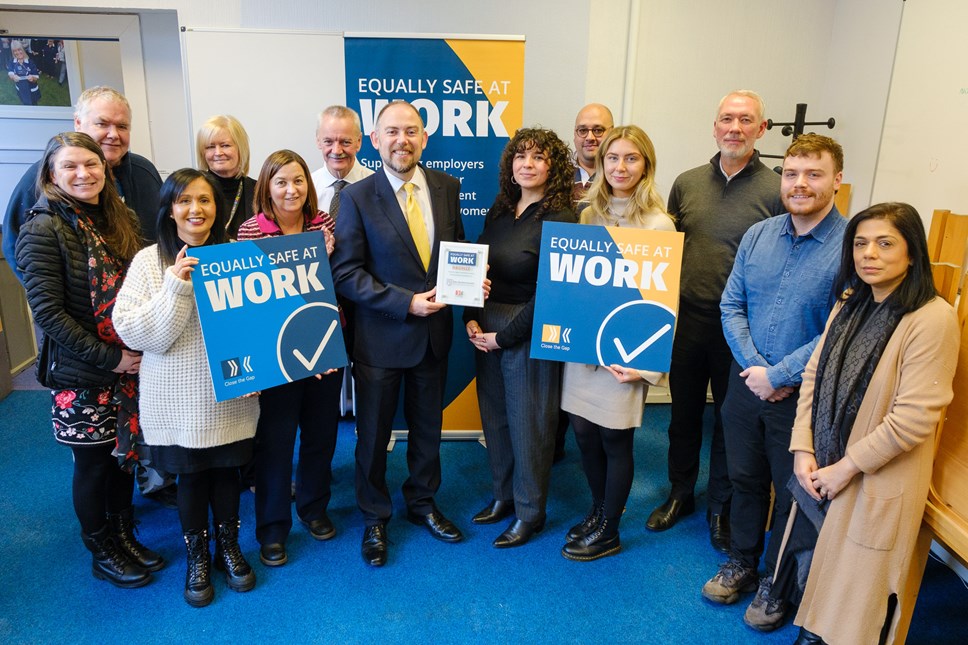
Council receives bronze accreditation from Equally Safe at Work programme
East Ayrshire Council has been awarded bronze accreditation in the Equally Safe at Work (ESAW) programme in recognition of its commitment to gender equality and preventing violence against women.
ESAW is run by Close the Gap, an organisation that works with policymakers, employers and employees to address the causes of women’s inequality at work. The ESAW programme recognises that employers have a key role to play in tackling this inequality as it’s a necessary step in preventing violence against women, which is an employment issue in itself whether it occurs inside or outside of the workplace.
The bronze accreditation is valid for two years and the Council will need to demonstrate at the end of the period that it continues to meet the criteria, before then working towards achieving silver.
Councillor Neal Ingram, Cabinet Spokesperson for Human Resources, Equalities and Inclusion, said: “Women make up 75% of our workforce and we recognise that there is an integral link between addressing gender inequality and preventing violence against women, and that starts in our workplace.
“The Council therefore has a vital role to play in developing employment policies and practices that are sensitive to the needs of victim-survivors; taking action to prevent violence against women at work, and taking account of women's different experiences in all aspects of the workplace.
“Thank you to everyone who has been involved in taking this forward over the last 18 months to ensure that we are at the forefront of advancing gender equality in local government.”
Anna Ritchie Allan, Executive Director of Close the Gap, said: “We’re delighted to award bronze accreditation to East Ayrshire Council which is a sector leader on gender equality at work. Violence against women affects all aspects of women’s lives, including the workplace. It can make it difficult for victim-survivors to do their job well, prevents them from progressing, and in some cases forces them out of their job altogether. For employers, this can mean reduced productivity, the cost of managing unplanned absences, and higher staff turnover.
“The Equally Safe at Work programme is a tried and tested way for employers to improve their practice, tackle the gender pay gap and better support victim-survivors in the workplace. Employers that take steps to advance gender equality at work are more innovative, more productive, better able to manage skills gaps, and are more protected from the costly risk of discrimination.”
ends
